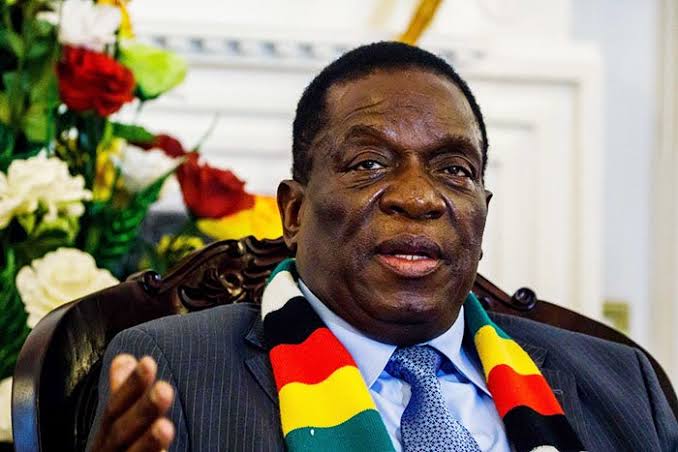
ZIMBABWE’s President Emmerson Mnangagwahas picked a fight with the country’s most successful businessman. The economy may be the loser.
Under pressure from a plunging currency and 737% inflation, Mnangagwa’s administration on June 27 restricted almost all mobile money transactions in a country where 90% of commerce is conducted on handsets because of cash shortages.
On July 17, the police accused Srive Masiyiwa’s Econet Wireless Zimbabwe Ltd, which dominates mobile cash transfers, of money laundering.
The battle pits Mnangagwa, who came to power in a November 2017 coup, against Masiyiwa, the businessman who founded and controls Econet.
The company’s mobile money unit EcoCash has 11,4 million customers and a 98% share of the market.
Its platform is used for everything from buying household furniture to paying public transport fares.
The government is seeking a “scapegoat,” said Derek Matyszak, an independent governance analyst in Harare, the capital. “They are shooting from the hip at the inflation monster.”
Masiyiwa, who founded Econet in 1998, has a net worth valued at more than $1 billion, based on Bloomberg calculations.
- Chamisa under fire over US$120K donation
- Mavhunga puts DeMbare into Chibuku quarterfinals
- Pension funds bet on Cabora Bassa oilfields
- Councils defy govt fire tender directive
Keep Reading
The 59-year-old businessman and philanthropist has been a frequent critic of the government. At the same time, he’s appealed for aid to help Zimbabwe fight the coronavirus pandemic. Blind eye EcoCash is accused by the government of turning a blind eye to the use of its platform to fuel black market currency trading.
The Zimbabwe dollar was valued at 100 per United States dollar on the black market — four times above a currency peg of 25 to the greenback that ended in June — at about the time of the transaction ban.
The gap has since narrowed as the authorities allowed the official rate to depreciate to 72 to the dollar.
Oversight of EcoCash will now be moved to the central bank from the Postal and Telecommunications Regulatory Authority of Zimbabwe.
From August 15, the central bank will be able to monitor its transactions, as they will pass through ZimSwitch, a national payment platform.
“It’s the necessary medicine to cure our economy, which is under siege,” said Patrick Chinamasa, acting spokesman for the ruling Zanu PF.
A search and seizure warrant filed by the police aimed to allow them to examine EcoCash’s subscriber list and transactions. A judge denied the police application.
Dire consequences “Independent investigations so far have also confirmed government allegations,” said Ndavaningi Mangwana, the Information permanent secretary.
“Implementation of a full set of regulatory reforms will even bring down the rate and prices to a much more realistic level which responds to economic fundamentals and not whimsical creation of digital money by some platforms.”
Econet denies the money-laundering allegations. The accusations against are a pretext for a bolder move, Econet chief executive officer Douglas Mboweni said in court filings.
“There appears to be an agenda to destroy Econet and remove it from its market leadership position to the benefit of another operator,” he said.
It counts as rivals to State-owned NetOne and Telecel Zimbabwe Ltd. A complete shutdown of EcoCash could have dire consequences for the economy.
About seven million transactions from two million users were handled daily on its platform before the shutdown.
“EcoCash is a much bigger problem for authorities as it’s also used by ordinary people for the payment of bills and in supermarkets,” said Tony Hawkins, an economics professor at the University of Zimbabwe.
It also provides the government with revenue, as there is a 2% intermediated money transfer tax on electronic transactions. The measures “didn’t take into consideration the impact on the transacting public,” said Kuda Musasiwa, the founder of Fresh In A Box, a Harare-based company that sells groceries online and has seen a 90% slump in mobile payments.
“End is coming” The animosity between Econet and the authorities dates back to 1998, when the company was founded.
Masiyiwa waged a five-year legal battle with former ruler Robert Mugabe’s government before he could get its licence.
Mnangagwa (77) was then one of Mugabe’s closest allies.
Since then, Econet has been accused of funding subversive activities, failing to remit taxes in foreign currency and refusing to comply with an order to share its infrastructure with state owned rivals.
It’s been repeatedly threatened with a withdrawal of its licence.
EcoCash is one of the companies described by Mnangagwa as “wolves in sheep’s clothing” when he warned June 24 that the “end is coming” for private companies he accused of weakening the currency.
George Charamba, Mnangagwa’s spokesman, didn’t respond to several calls seeking comment.
Masiyiwa, who is in self-imposed exile and claimed an abduction attempt in 2004, has been living mostly between Johannesburg and London.
He has played a key role in providing assistance to the nation, helping with aid after a cyclone struck last year and paying school fees for more than 250 000 children.
“It’s a love-hate relationship that exists between the government and Econet,” said Matyszak. “The ruling party hates it because it believes one of its structures is fuelling the black market. On the other hand, they won’t hesitate to knock on Masiyiwa’s door when they need money.” — Bloomberg











